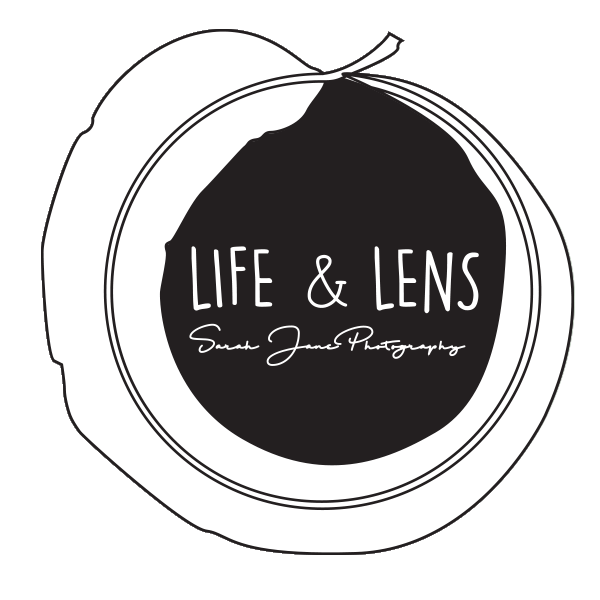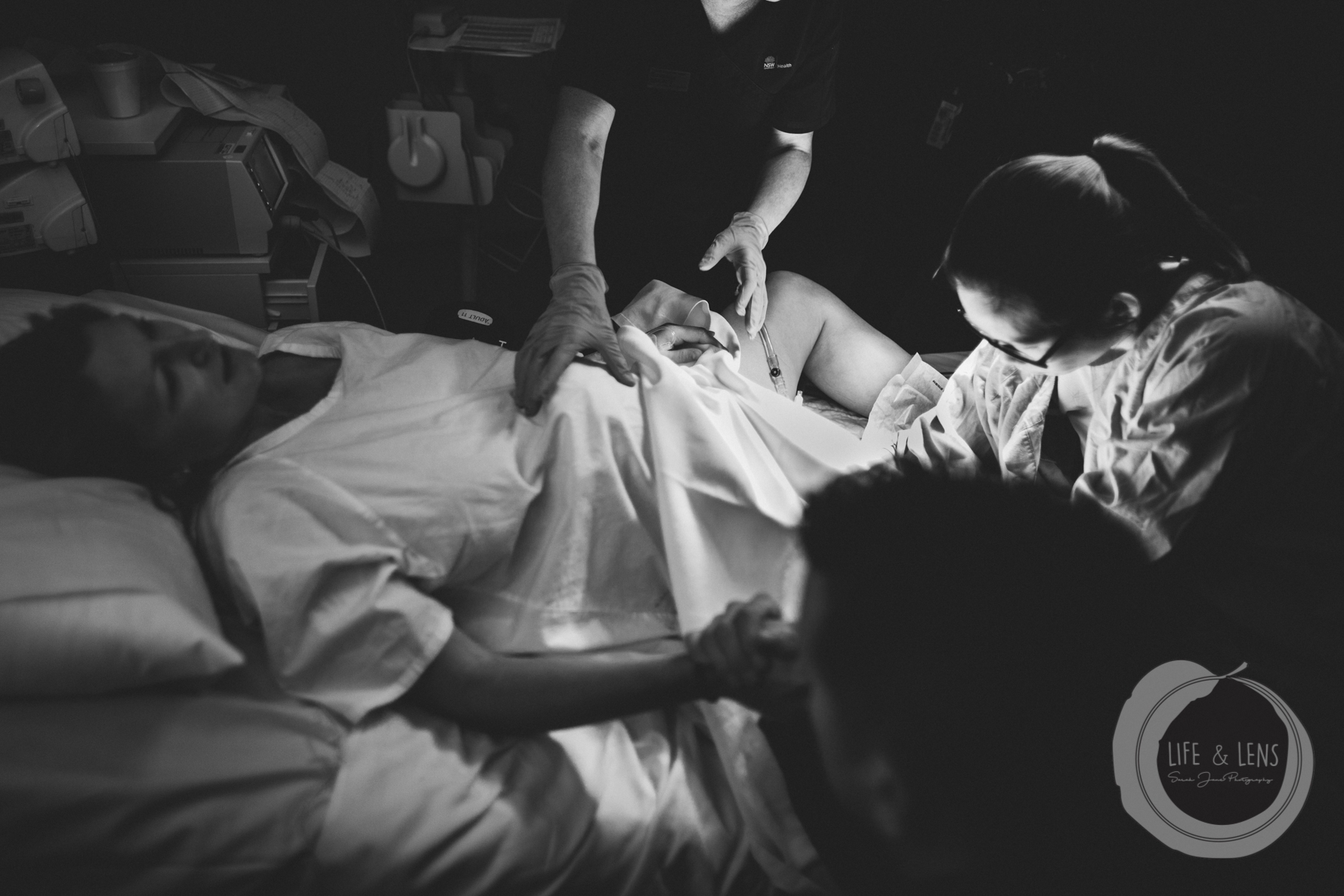Birth Myths - "fully dilated" does not = time to push
You're fully dilated! Congratulations! It's time to push..... right?
....not quite.
I know it won't surprise you to hear that not all women are alike. So, it goes without saying that not all babies are alike, right? And let's continue on to say that not all births are alike... So why are hospitals, midwives and OBs still pushing the agenda that "10cm = time to push" as though all women's bodies are innately ready to push once they've reached 10cm dilated?
Let's start with the fact that measuring how far dilated a woman is, is far from an exact science. Midwives and OBs measure dilation using their fingers and as above, not all women are the same so not all fingers are the same; one midwife's 8cm might be another midwife's 10cm and vice versa.
It's like me holding two hands apart to measure a space on my wall and then saying "I need a frame this big..."
birth is not linear...
Many a things can happen in birth and one event does not signal that a next event is sure to follow within a certain timeframe...
Your waters may break without you ever having felt a contraction...
Some women birth their babes without EVER feeling a contraction...
You may never notice the loss of your mucus plug...
Some women dilate faster than the hospital's standard guidelines of "a cm an hour"...
Some women dilate slower...and that is okay too.
So why are we here? Why the push for "10 and push"?
Let's take it back...wayyyyy back when.
In the middle ages, births were assisted solely by midwives. Men weren't allowed, nor did they want to, step foot into the birth space - but men still wrote the guidelines on what was good practice in birth...of course, despite never having attended births themselves. Because how could women know what to do with their own bodies?
Women birthed in upright positions; be that squatting, kneeling, standing or on all fours. We birthed in active positions.
In the 18th century doctors began to get involved birth. In the mid-1800s pain relief in childbirth was gaining traction; at this stage it meant using whichever drug would bring about unconsciousness and the dose was whatever was required to do so... #sciencebitch :| for real.
In the 19th century advances in medicine brought about "twilight birth" whereby a sometimes fatal combination of the drugs morphine (acts on the central nervous system to relieve pain) and scopolamine (causes patients to enter into a semi-conscious state and to experience amnesia) was administered to birthing women.
The effects of these drugs caused women to not recall their labour or the associated pain however, pain relief does not stop pain, it merely stops your brain from receiving those messages of pain so the pain was still prevalent. Women were forced to give birth on their backs, they were strapped into beds and blindfolded, their legs up in stirrups while the doctors manually removed their babies with whatever tools they deemed necessary.
Have you ever seen forceps and thought they looked like an old torture device...well, you thought it...
Babies didn't arrive unscathed either. Modern medicine has taught us that these drugs cross the placenta to the baby and thus babies were commonly born unresponsive; any images you've seen of babies being held upside down by their feet with a doctor slapping their butts to 'stimulate breathing' would have hailed from this period...
You can easily see the steep decline of birth to be taken out of the hands of women and into the hands of the medical model. Birth began to be treated as an emergency situation, where once women feared having to go to hospital to birth as this meant something was seriously wrong, to now, with hospital births being the norm.
The introduction of drugs during childbirth which hindered women from birthing as we were meant to, in the active positions I mentioned above, meant that doctors had to create guidelines for care providers to follow to indicate when it was time to push, as the mother couldn't feel it herself.
Over time and through the centuries women were forced to birth on their backs, regardless of whether drugs were being used during their birth, as it was easier for their care providers to see what was going on and to check their progress and dilation.
Thus, we have arrived at "10 and push".
What's the problem with "10 and push"?
I've seen it all too often, women are declared fully dilated, led to the bed in their birthing suite, told to stay on their backs, pull their knees back and to push when they have a contraction or when instructed to...
But, knowing that birth isn't linear, what happens if the baby isn't ready to come down yet....just because the Mother is 'fully dilated' doesn't mean the baby is ready to make its way down the birth canal.
So push we do. The mother is guided and told when to push for "up to 2 hours" as is commonplace in hospital births. She is exhausted from forcing her body to do something she may not have the urge to do. Something her body and her baby may not be ready for. 2 hours rolls around, and if you're in a hospital setting this is where the suite of interventions is brought out.
They prep and prime you for "help" by saying things like "baby is getting tired", "baby isn't liking this", "baby won't be able to keep this up for much longer" and "baby's heartrate is dropping" - which of course, puts Mum in a state of worry and willingness to then consent to their next offer of 'help'.
Then they come at you with "we can get your baby out safely and swiftly...I'll just give you a "little" cut...", forceps....vaccuum....c-section.
Let's flip the story at this point. What could have happened if Mum had been left to labour, fully dilated and waited for her body to tell her when it was time to push. Or better yet, what could have happened if Mum had been given the freedom, the space and the support to wait until her body worked her baby out without her having to consciously push or think about it? What then? Could all of that trauma have been spared?
Mum would have been less exhausted that's for sure... baby would be less distressed and Mum most likely would not have had to push for as long.
If you've ever been forced to lay flat on your back while midwives and ob's yell at you to PUSHHHHHH every time you have a contraction - you'll know where I'm coming from and you'll understand that these stories could have played an entirely different line if hands off care had been practiced and a little bit of patience had been utilised.
What happens if you just...*gasp* let your body do it's thing?
Birth. Birth happens.
I'm not naive enough to believe that birth will always go swimmingly if you just succumb to the process, but there really is something to be said for women who trust completely and wholely in the process of birth.
The evidence proves that when pushing is delayed until the mother's urge to push, there are fewer fetal heart rate decelerations and less of a negative effect fetal oxygenation. Add in the lowered risk of needing interventions and it's really a no-brainer.
What are your options then?
Ultimately, it is your choice. You must consent to everything that happens to you and your baby in hospital. Do some research. Write a detailed birth plan and blu tack that shit to the door, the walls, the bed, your forehead if you have to. Make your wishes known.
If this resonates with you, tell your care providers that this will be your plan. Read up on what is safe variation for fetal heart rate monitoring during birth so that when they pull that pearl of fear mongering wisdom out you are informed. Be comfortable with your knowledge and know your shit.
Tell them that so long as you are feeling good and baby is feeling good that you'd prefer to wait until you feel the urge to push. Don't labour on the bed if you feel like things are taking too long, gravity is a wonderful thing and it will help you and your baby.
If you've had an epidural and you can't feel your body's urge to push, start tapering off the epidural release as you near 10cm and pushing, as you start to regain feeling you should know when it's time to push. Get up off the bed, if you can't feel your legs, ask your birth partner to hold you up in an assisted squat...
Trust yourself. Trust your body. Trust your baby. Trust in birth.
Ask yourself this.
Do you have any reason to believe that your baby does not know how to birth themselves?
Do you have any reason to believe that your body does not know how to birth your baby?
If yes to either of those questions, are those reasons based in fear?
Do yourself a favour and just do a little reading into the physiological process of birth; you might just surprise yourself in realising that it's actually pretty simple stuff.
Simple, but extraordinary, fascinating and beautiful.
But simple still.



